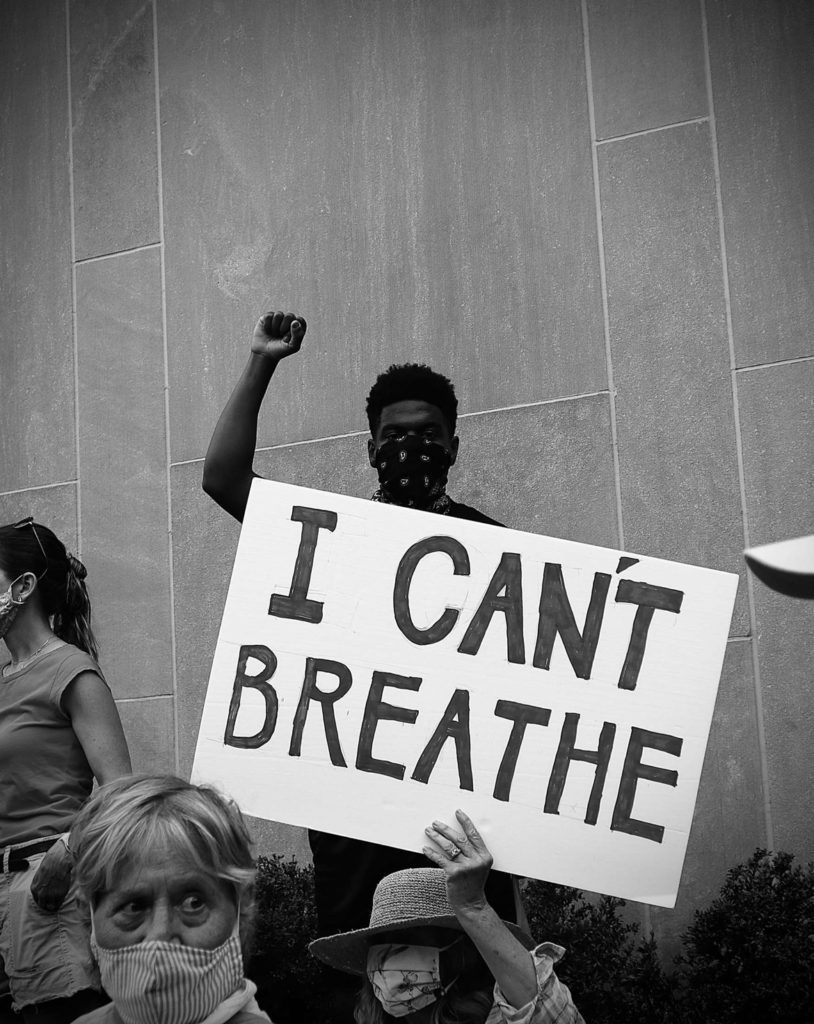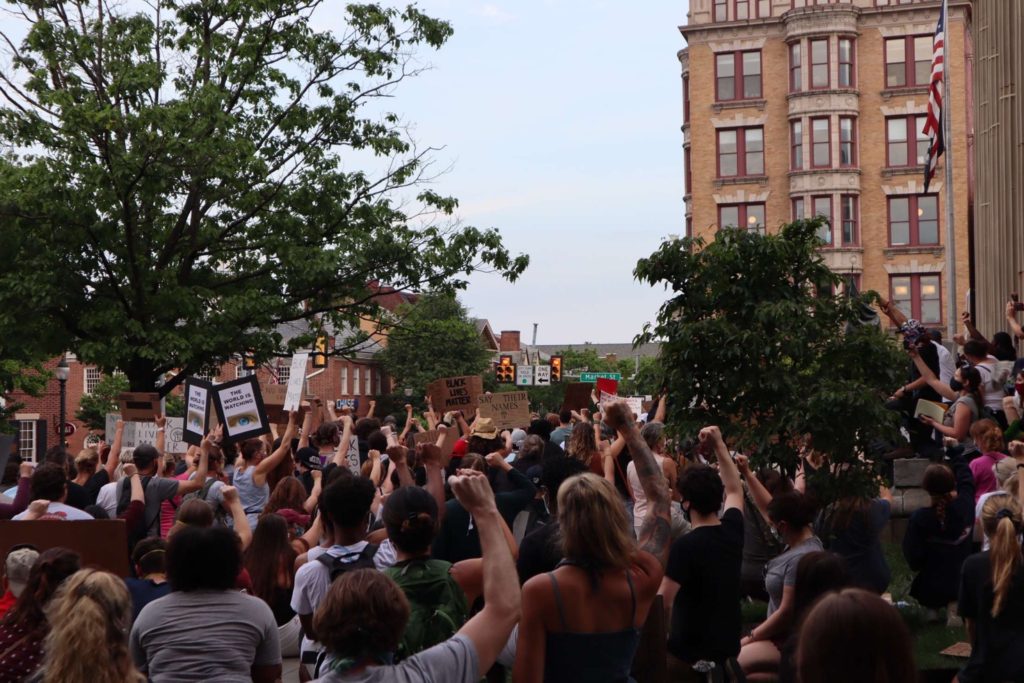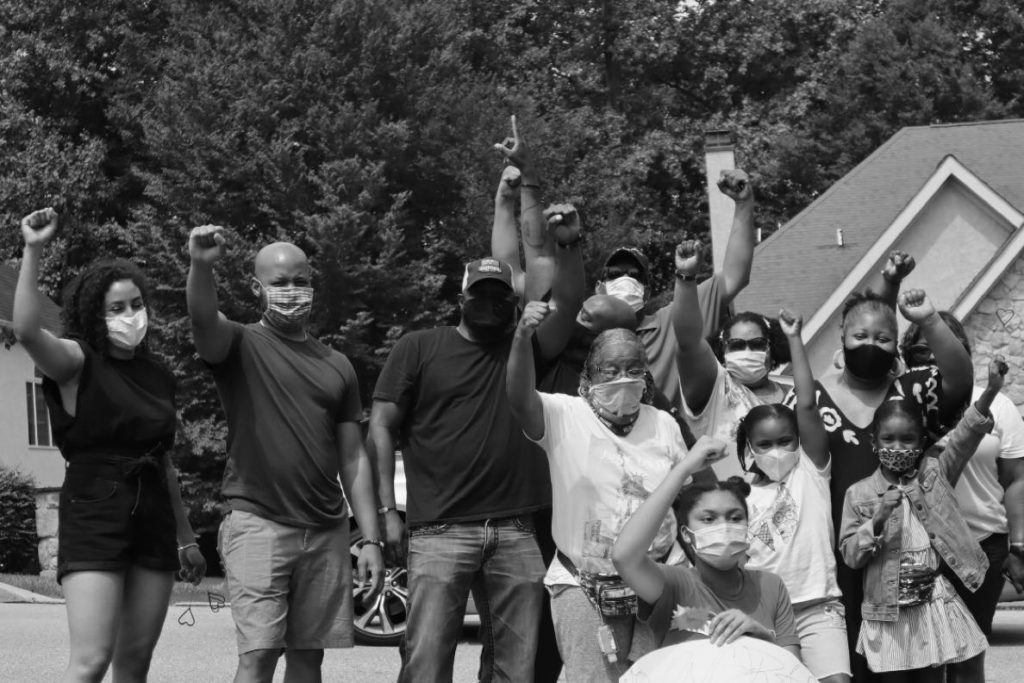Aiden Chavis ‘21
When Scholium asked me if I would be willing to comment about the Black Lives Matter protests of the summer, I at first did not really know what I would say. These past few months have been a whirlwind of emotions for me. Being asked to comment about it pushed me to look back through my journal and I discovered something I wrote as a 7th grader at Episcopal in 2016:
“3/3/16 Entry #1 section 1
Tension in the country is rising and debates are sparking more and more flames. Isis, the election, and the ever ‘controversial’ topic of Black Lives Matter. People are saying that the black panther party is the black version of the KKK, their ignorance bothers me. Negligence in our community is unbelievable. Peaceful protests turn into hateful comments on youtube. The government and major corporations almost rule people’s minds. Tradition has become the basis of hatred, we spend too much time in the past and forget about the present. We always think ‘what could I have done?’ instead of ‘what can I do now?’ The future isn’t clear, but it scares me thinking about where humanity is going.”

Photo courtesy of Aiden Chavis ‘21
I’d be lying if I told you I remember what exactly inspired me on March 3rd, 2016 to write the jumbled message I found on the paper. However, one thing is clear: not much has changed between how I feel now and then. People are in the streets weeping for lost bodies that were disregarded by an institution that never seemed to care about them in the first place. The political aisle that separates the parties has become a fortress separating two warring factions with a dangerous blood-feud. The cherry on top, or perhaps the catalyst for it all, is the global pandemic wrecking the lives of people across the globe. Through all of this, it is easy for messages to be misconstrued and maliciously twisted to gain the upper hand in a political comment section, so allow me to make it very clear: black lives do not matter.
You read that correctly. The reason I have to rationalize the statement “black lives matter” is the same reason why it is so important. The black breath in America has been reduced to funny Instagram accounts and played-out stereotypes on TV. Those whose interactions with “black culture” are limited to hip-hop and Kevin Hart specials on Netflix are quick to point it out as the root of the struggle in our communities and justify the objectification of people because of their salary. Black lives do not matter because George Zimmerman is free to sign confederate flags and bags of skittles for his fans on social media. Black lives do not matter because I know people in jail for decades simply for possession of marijuana while their white counterparts graduate from college and give Chapel speeches about redemption for much worse. Black lives do not matter because no one faces responsibility for Breonna Taylor’s murder. Black lives do not matter. My kindergarten-age sister cried to my mom in 2013 about wanting to be “peach” because “brown is ugly” and today as a 9th grader will not wear her hair naturally.
I walked these halls every day longing for something to cling to. Someone who could feel my pain when Trayvon Martin was killed. I went to school angry and cried myself to sleep some nights because my concerns were greater than what grade I received on the latest math test. As the years passed I lost friends because they could not even begin to understand my reasons for operating the way I do in my space, and I could not find a way to relate that to them.

“3/11/16 Entry #2 section 1
Yesterday was diversity day aka “Mix It Up” day. It’s a great concept, and I genuinely appreciate it, but for me, it just cements the truth of the fact that no one is color blind.”
If I had written that entry today, I would add something Mr. Ayinde Tate, Director of Diversity and Inclusion at EA, suggested; “People need to stop pretending to be colorblind because in all reality that negates people of color’s lived experiences.” For me, being black in predominantly white spaces has been like trying to breathe underwater in a school of fish. When one speaks underwater they are barely able to understand what they are saying themselves, let alone the fish around them. In all honesty, trying to prioritize other people’s comfort only adds to the frustration of being arbitrarily different for me. “Social climbers” can hide or replace the least desirable traits for the more socially acceptable versions, but I can’t just step out of my skin. The irony of it all is that I’m not different, but that’s what “black lives matter” really means. I’m not an athlete, comedian, body, statistic, criminal, advertisement, marketing strategy, or vote. I am a person. My life matters because I exist in this world; not because of what I contribute to a society that arguably doesn’t love me back.
To rid the world of racial theory would mean creating a world in which one human is indistinguishable from the next. In other words, the racial theory may always exist. This does not mean we cannot remedy the wounds, but it is not fixed by ignoring the problems or pretending not to see the obvious. It begins by acting as though, despite our various differences, we are people with shared experiences in the life that we get to live every day. What needs to be understood is that ignorance is understandable, as long as it’s temporary. Remaining complacent in that ignorance and a lack of empathy, those are what’s detrimental. How do we move forward as a community? Tate answered: “I think just not having the blinders on… believe people.” We need to consistently be vulnerable and intentionally seek ways to burst our bubbles of comfort. We need to challenge ourselves as much as we challenge others and pursue our boundaries in order to expand them. I asked my advisor Michael Whalen, a conservative teacher in a liberal space, what the greatest obstacle in creating an open dialogue was. He sums up the solution pretty well:

“If we think our side has all the answers, and that it is our job to convince other people or shame them out of their own beliefs and values, how can we possibly have an honest and open discourse? We need to start looking at each other again on a more basic level. As human beings who deserve the respect that we are entitled to as Americans and who have a common goal.”
We may never see eye to eye, but that was never the intention of the Black Lives Matter movement. It was never black lives matter more or black lives matter most. It was always black lives matter too. The slogan only works if you have an understanding that, yes, all lives matter, but that notion in today’s world is purely theoretical. In practice, we, as Americans are faced with countless disparities based on differences that are sometimes out of our control. Black Lives Matter was a request for America to acknowledge the individual dignity of people it has gained so much from in direct response to an injustice that was never corrected; an acknowledgment that all lives should matter, also recognizing that Trayvon Martin, Sandra Bland, Tamir Rice, and countless others’ lives were taken for the price of a slap on the wrist from an institution that has promised to protect them. It was a call for equal justice in this land so that all lives can truly matter as promised by the constitution. We may never attain the goal we are pursuant to, but a “more perfect union” should be on the back of every American’s mind during times of crisis. I have faith that one day love will prevail and the invisible force that binds us together will be prioritized over the seeds of doubt that often tear us apart. Not everyone’s life matters equally yet, so until that day I will sing for those who cannot sing for themselves. Black Lives Matter.